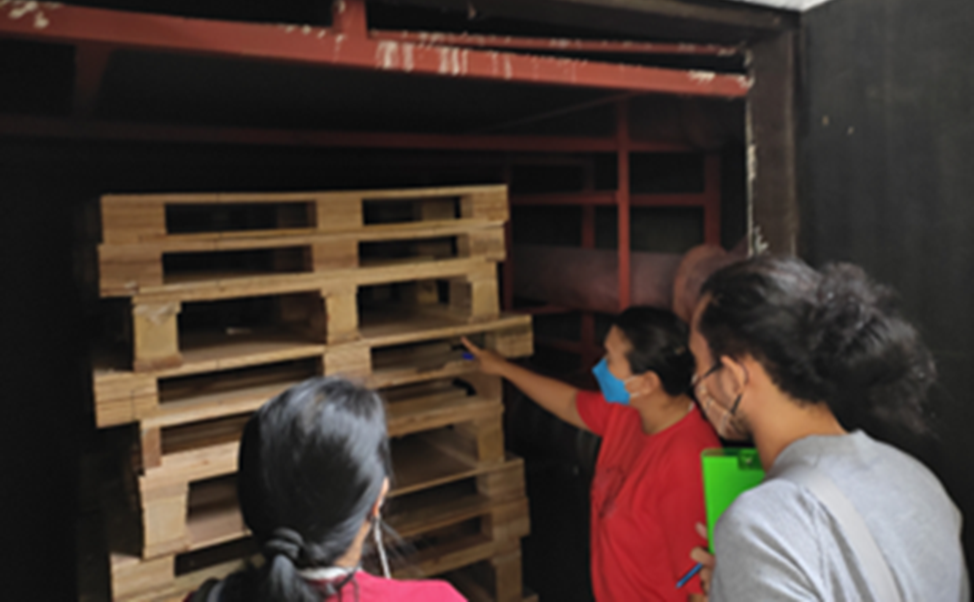Engr. Wency H. Carmelo (in red) explains details about the DOST-FPRDI heat treatment process to the accreditation team of the Department of Agriculture’s Bureau of Plant Industry (DA-BPI).
There is good news to wooden pallet and crate makers located near Laguna who rely on high standard facilities so they can produce quality products. The Department of Science and Technology’s Forest Products Research and Development Institute’s (DOST-FPRDI) heat treatment (HT) facility is now accredited by the Bureau of Plant Industry (BPI), ensuring the delivery of quality service to local entrepreneurs.
The facility uses heat in a kiln dryer to kill insect pests infesting wooden pallets and other packaging materials, making it an effective deterrent to the spread of diseases across national borders.
Explains DOST-FPRDI’s Engr. Wency H. Carmelo, “To guarantee that invasive insects and diseases are not passed on from one country to another in the global market, the International Standard for Phytosanitary Measures (ISPM) No. 15 requires producers of wooden packaging materials to disinfect their pallets and crates. They can do this either through heat treatment or methyl bromide (MB) fumigation.
“HT is a safer and cheaper means of sterilizing wooden packaging materials compared to MB. High amounts of MB can be fatal and are very damaging to the ozone layer. HT, on the other hand, is relatively harmless and about 50 percent cheaper.”
The ISPM implements very strict policies as insect pests and diseases transported through global trade have been known to cause massive environmental damage. In the midwestern US, for instance, these ‘agents of destruction’ have once taken over forests that wiped out entire tree species.
According to Carmelo, through the accreditation of its heat treatment technology, DOST-FPRDI is able to support the country’s export industry as it gives wooden pallet makers an effective, safe and affordable way to meet global sanitary standards.
Furthermore, this intervention fully supports the DOST’s current development strategies that include job and livelihood generation, environment protection, and sustainability to attain socioeconomic development in the country.
Photo: Engr. Wency H. Carmelo (in red) explains details about the DOST-FPRDI heat treatment process to the accreditation team of the Department of Agriculture’s Bureau of Plant Industry (DA-BPI).

